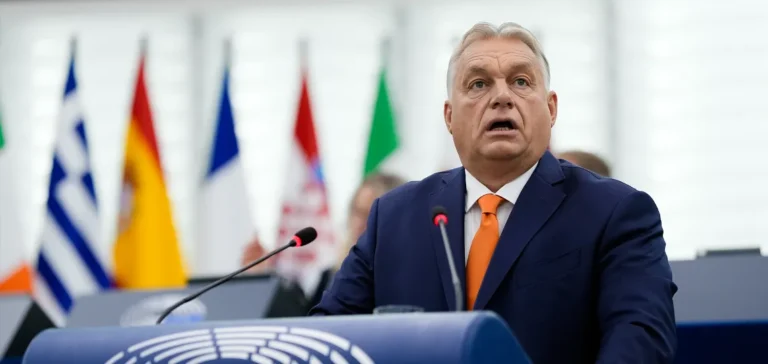Hungarian Prime Minister Viktor Orban stated that his government is exploring options to bypass US sanctions imposed on two major Russian oil companies. These restrictions target Rosneft and Lukoil, two key players in Moscow’s energy revenue, in response to the ongoing war in Ukraine.
Hungary’s strategic energy dependence
During his weekly radio interview, Viktor Orban said, “Sanctions have been imposed on certain Russian oil companies,” adding that his government was “working on ways to bypass them.” He noted that any effort to reduce energy prices must allow Hungary to continue sourcing oil and gas from Russia, or at least obtain it at comparable or lower prices.
Hungary remains one of the most energy-dependent European countries on Russian imports, due in part to its landlocked position. Despite the European Union’s 2022 embargo on Russian oil, Budapest secured an exemption, along with Slovakia, to preserve its access via the Druzhba pipeline.
US sanctions and regulatory framework
The United States announced a full freeze on Rosneft and Lukoil assets located on its territory and prohibited all American entities from engaging in business with them. These measures mark the first significant sanctions imposed by Donald Trump’s administration since his return to office. The actions increase economic pressure on Russia while creating additional challenges for European partners still tied to its exports.
Hungary, which introduced a cap on household energy prices in 2013, continues to oppose any European measures that could jeopardise its domestic pricing strategy. “This battle is not yet over,” said Viktor Orban, underlining the government’s intention to preserve access to Russian energy resources seen as vital to the national economy.
European initiatives and sector impact
Meanwhile, European institutions unveiled a 19th sanctions package against Moscow, including a full phase-out of Russian liquefied natural gas (LNG) imports by the end of 2026. Additional measures target the shadow fleet of tankers used by Russia to evade existing restrictions.
The situation highlights the tension between Hungary’s national energy strategy and the European Union’s commitments to Ukraine. It also exposes the limited manoeuvring space for landlocked countries seeking to diversify energy sources without increasing costs.






















